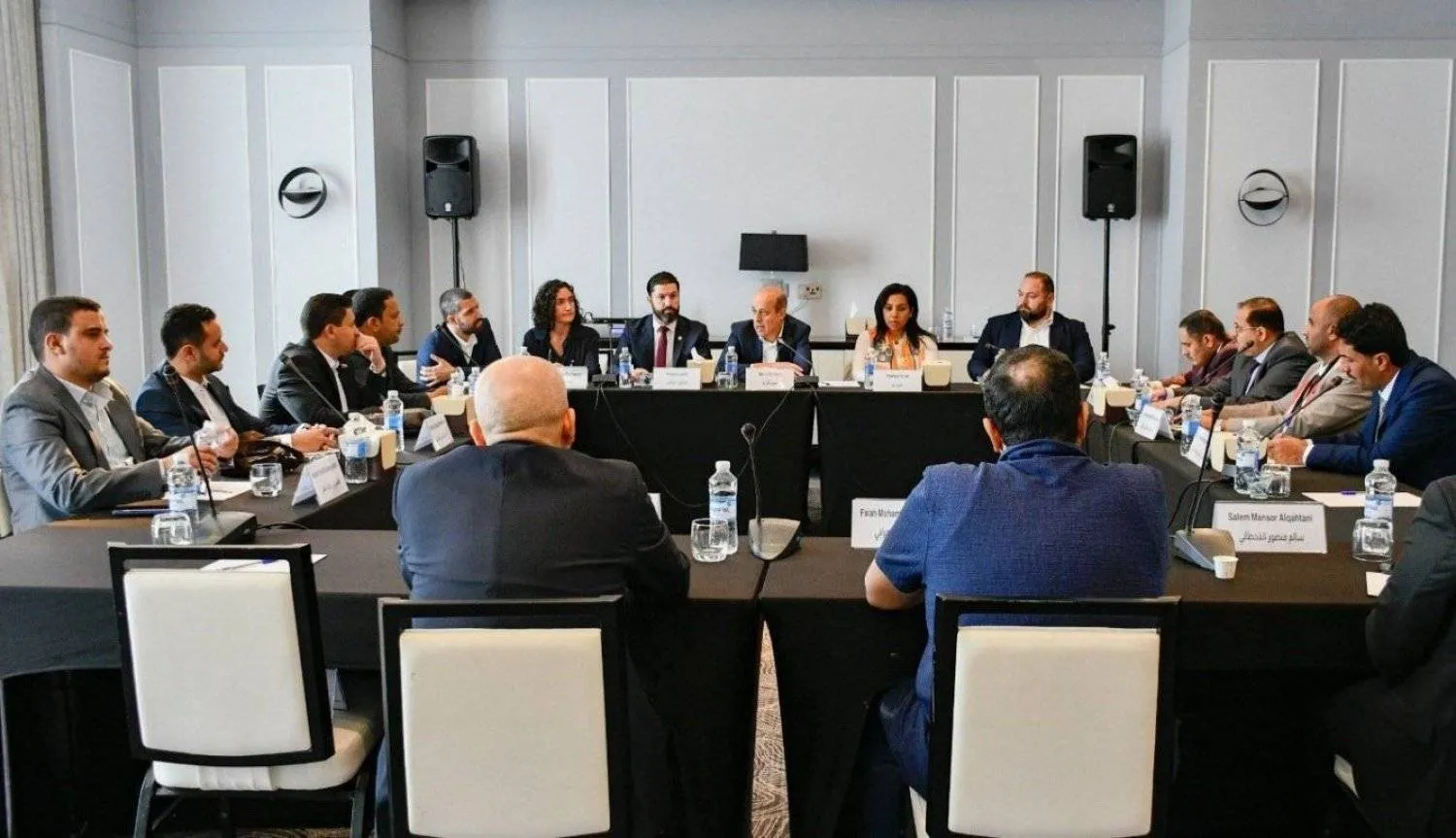Negotiations between Yemen’s government and Houthi insurgents have made significant progress in Muscat, Oman. Both sides agreed to exchange Yemeni politician Mohammed Qahtan for 50 Houthi prisoners.
Majed Fadail, the spokesperson for the government’s negotiation team engaged in prisoner and detainee discussions, confirmed the progress to Asharq Al-Awsat, noting that the talks began last Sunday under the auspices of the UN and the International Committee of the Red Cross.
The spokesperson emphasized that the recent agreement with the Houthis is preliminary, with critical details still unresolved.
“We have agreed to exchange Mohammed Qahtan for 50 Houthi prisoners,” affirmed Fadail.
When asked about Qahtan’s condition, Fadail said: “The Houthis have not disclosed whether he is alive. If he’s deceased, they’ll receive bodies in return.”
“We consider the matter unresolved until all details are finalized. Progress has been made, but the agreement must be fully implemented,” stressed Fadail.
The government delegation insists on clarifying the fate of Qahtan, held captive by the Houthis for a decade, before proceeding with any “all-for-all” deal.
“Our leadership mandates responsible handling of this humanitarian issue. Ensuring Qahtan’s release is a priority in any exchange,” noted Fadail.
The UN and International Committee of the Red Cross facilitated previous successful exchanges, raising hopes for a comprehensive agreement in Muscat that could end years of suffering for captive families.
Recent exchanges under UN auspices saw over 1,000 detainees released initially and around 900 in subsequent rounds.
The Yemeni government demands the release of all detainees under an “all-for-all” principle, accusing the Houthis of obstructing talks by selective demands and withholding information about prisoners.
In the past exchanges, the Houthis released three out of four individuals covered by UN Security Council Resolution 2216: former President’s brother Nasser Mansour, former Defense Minister Mahmoud Al-Subaihi, and military leader Faisal Rajab.
They continue to refuse the release of the fourth, Qahtan, withholding information about his health and denying family contact.
Muscat Talks: Agreement Reached to Exchange Mohammed Qahtan for 50 Houthi Prisoners

Part of a meeting in Muscat between representatives of the Yemeni Government and Houthis on prisoners and detainees (UN Envoy’s Office)

Muscat Talks: Agreement Reached to Exchange Mohammed Qahtan for 50 Houthi Prisoners

Part of a meeting in Muscat between representatives of the Yemeni Government and Houthis on prisoners and detainees (UN Envoy’s Office)
لم تشترك بعد
انشئ حساباً خاصاً بك لتحصل على أخبار مخصصة لك ولتتمتع بخاصية حفظ المقالات وتتلقى نشراتنا البريدية المتنوعة







